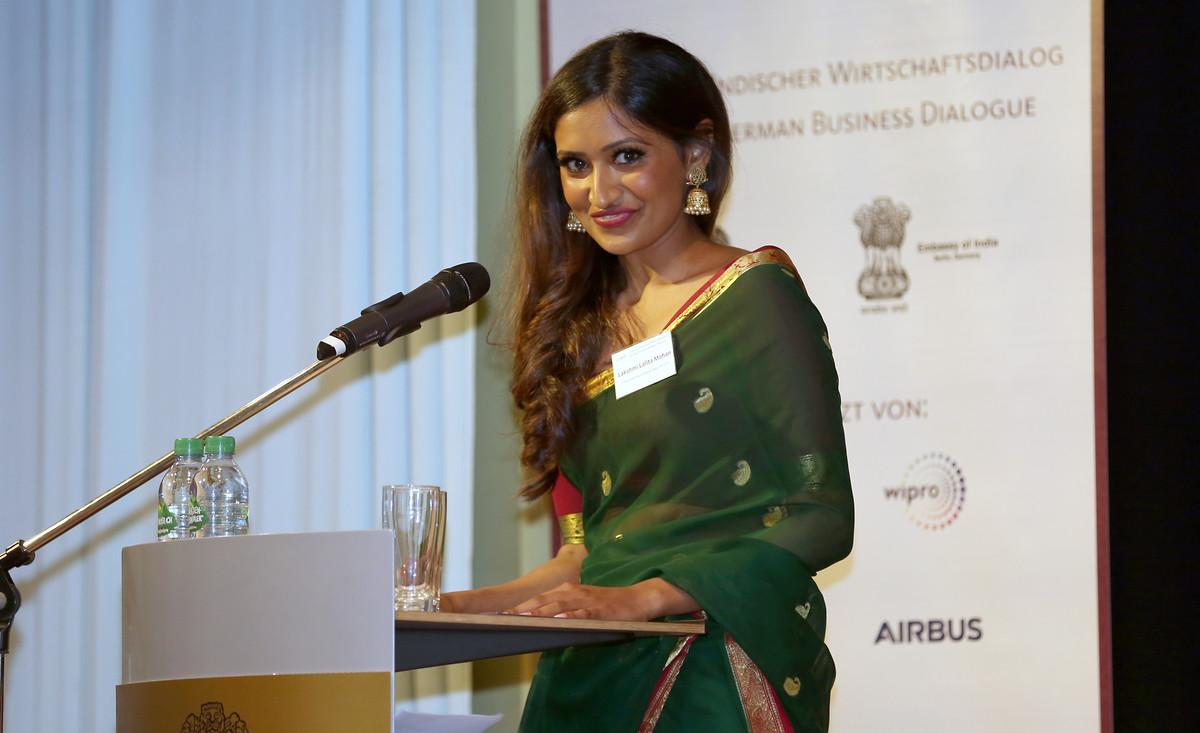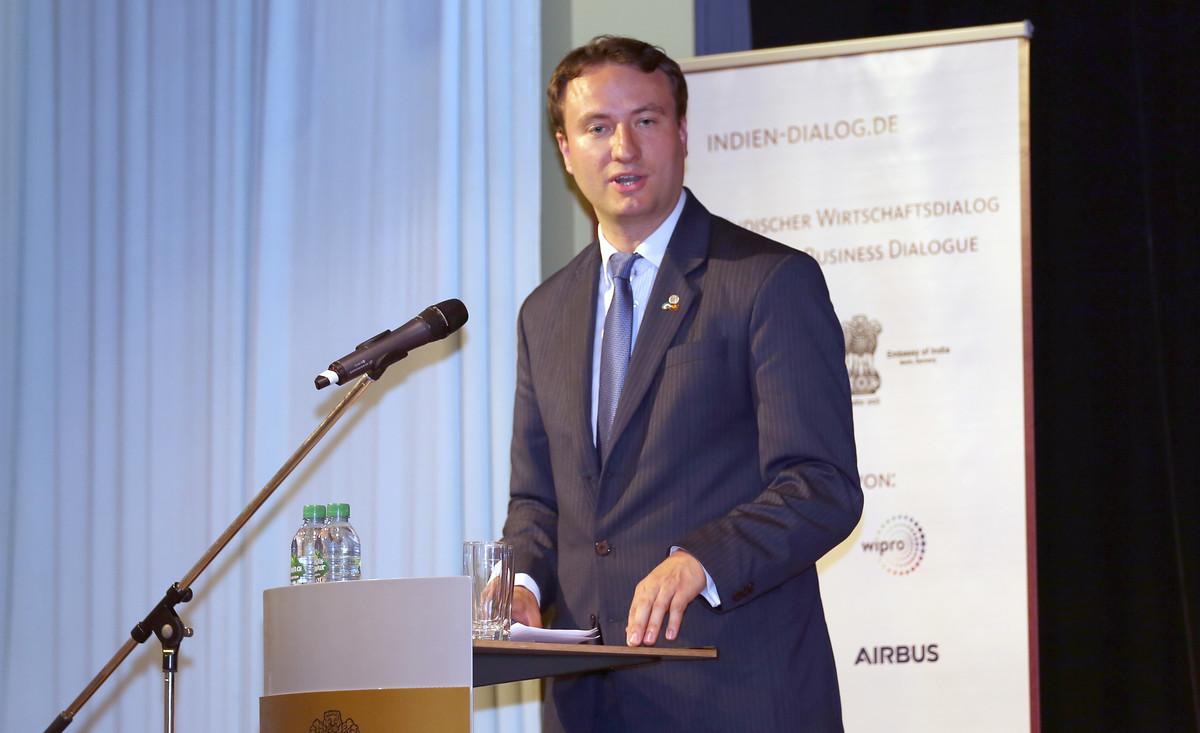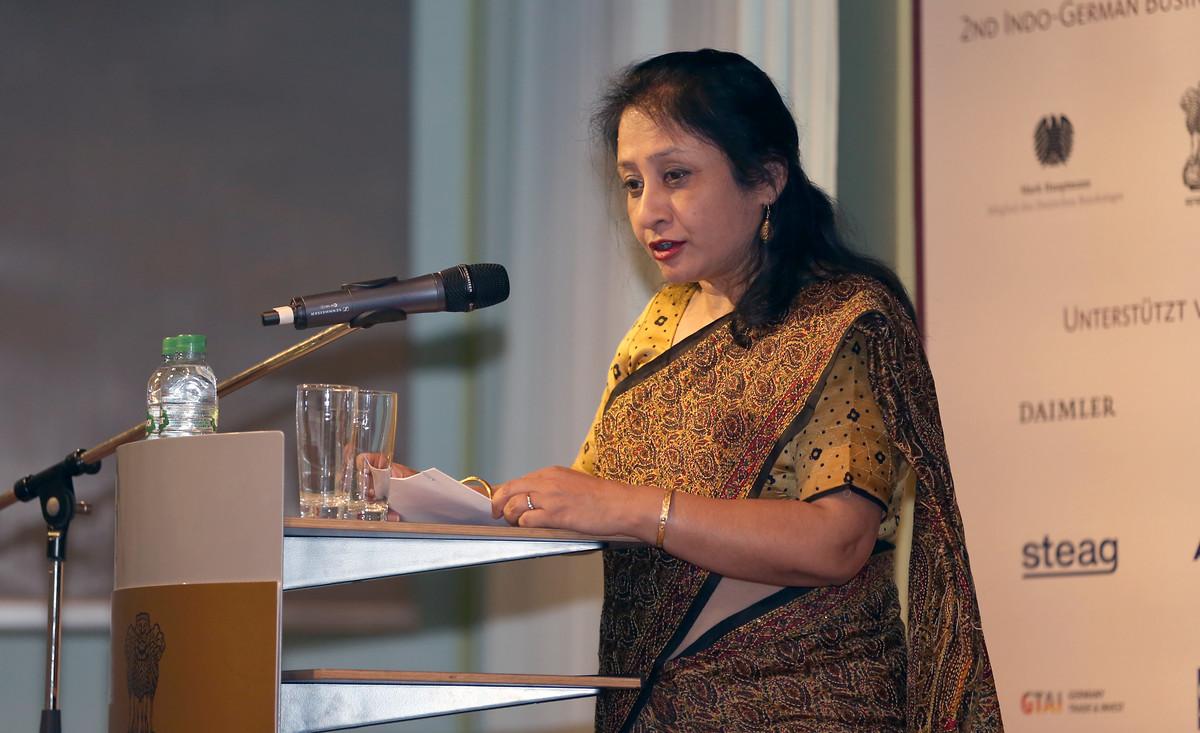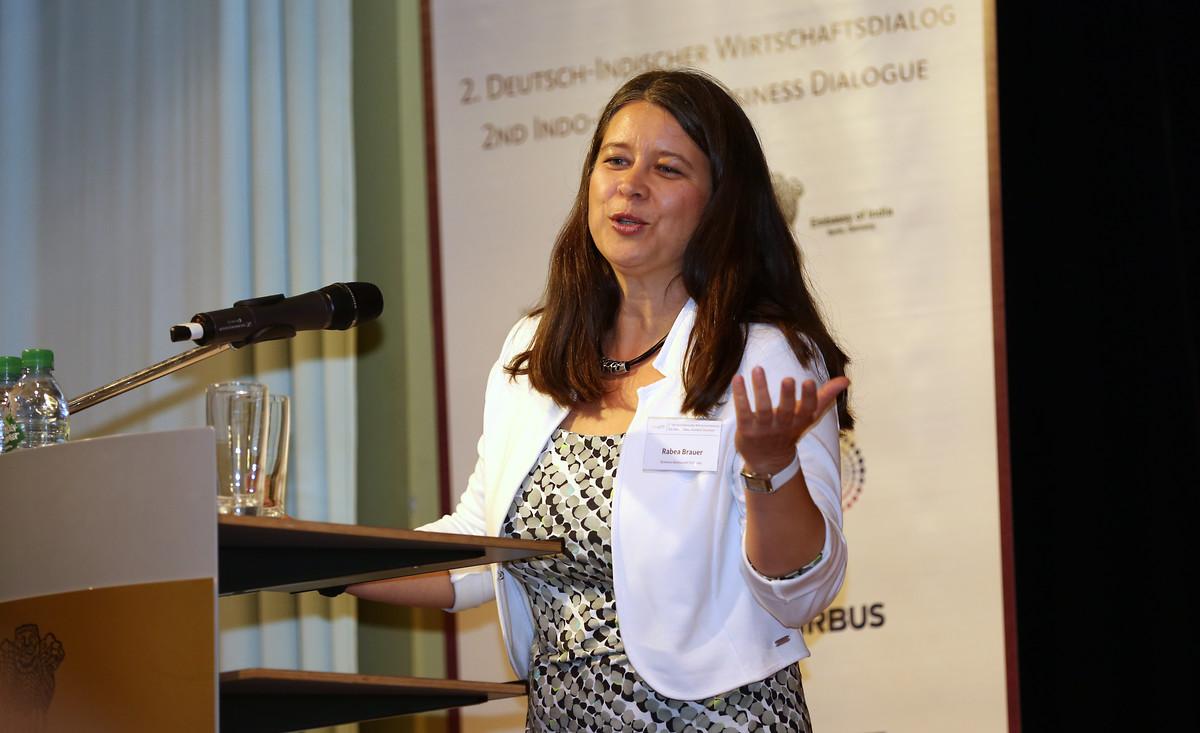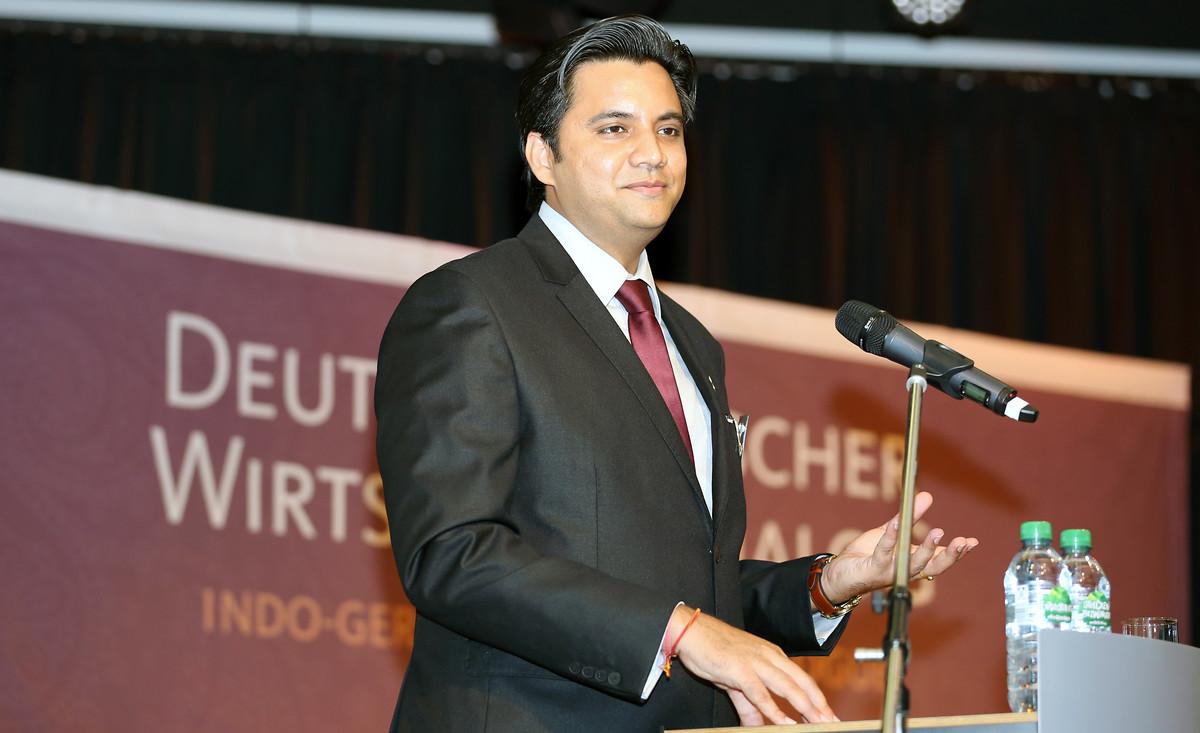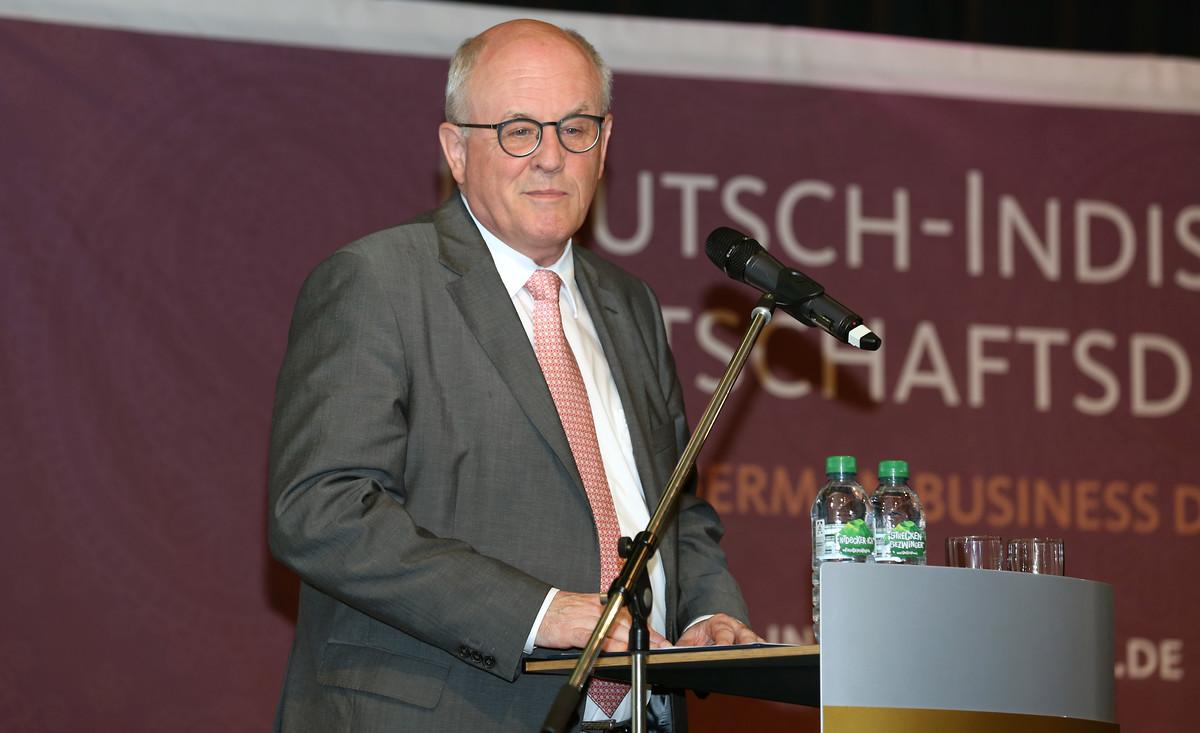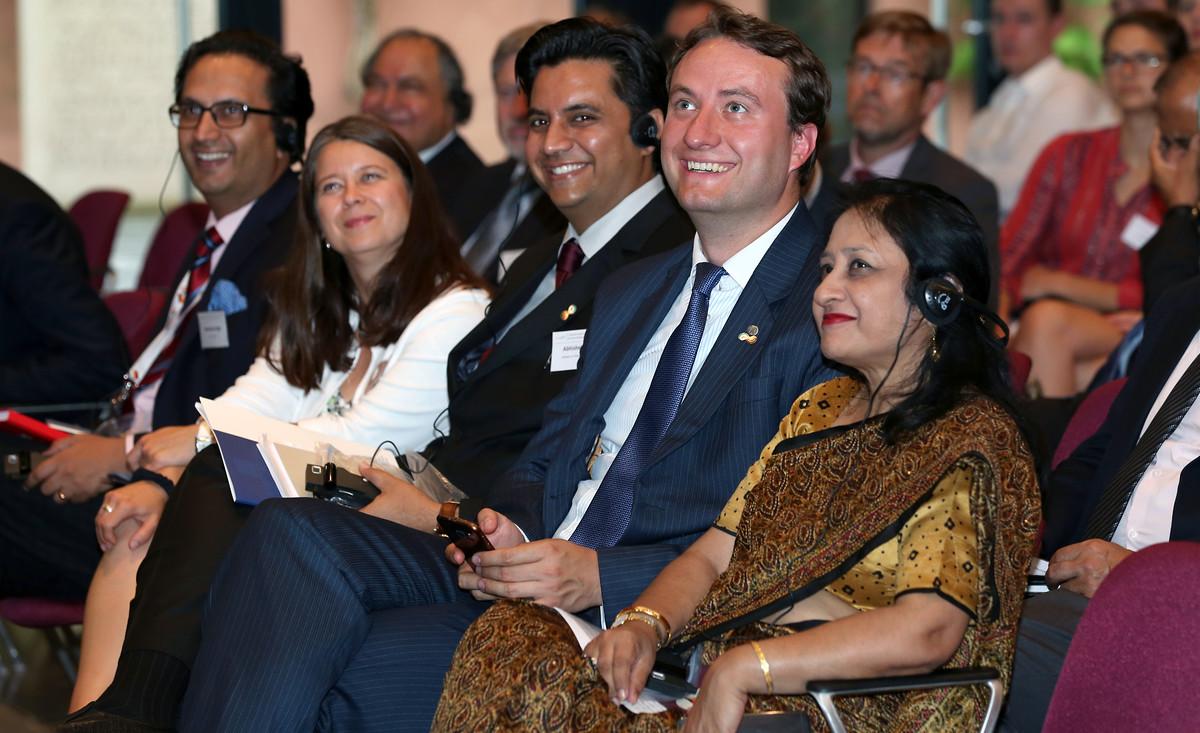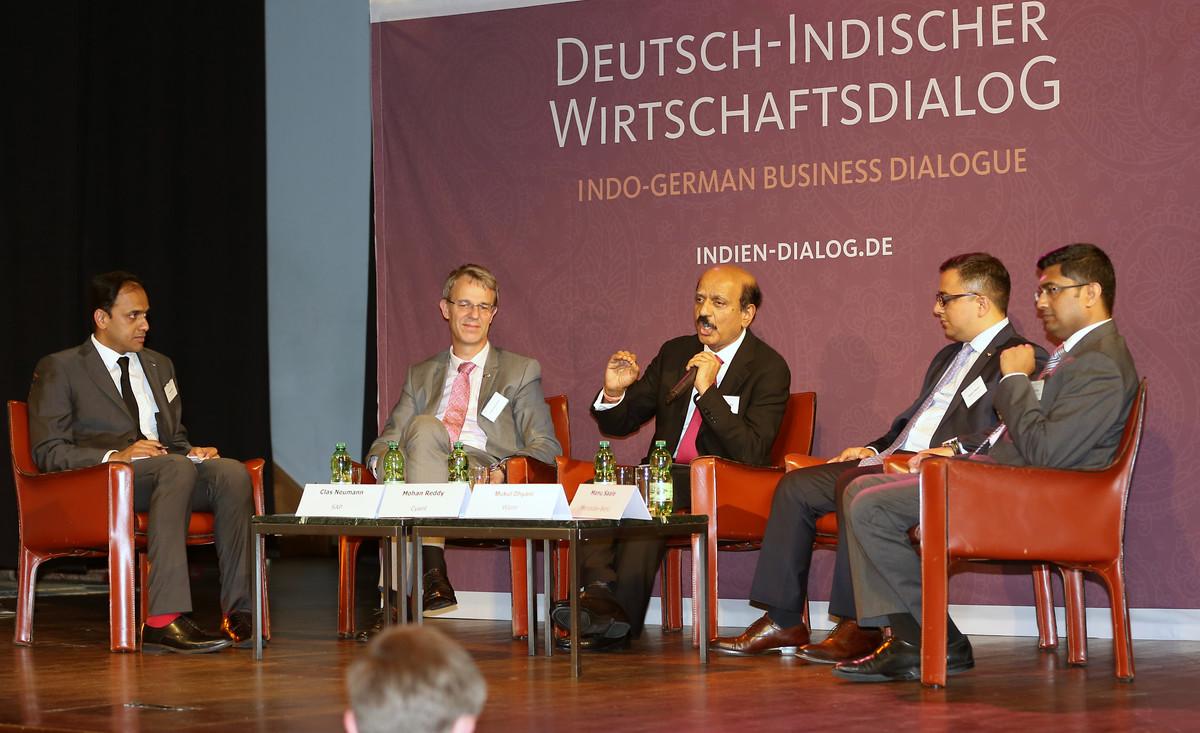Industry 4.0 and new impetus for the Indo-German partnership
Event Reports
The event brought together the German and Indian representatives from the fields of politics, business and civil society and facilitated the exchange of opportunities for closer Indo-German cooperation in various economic sectors. With Indian Prime Minister Narendra Modi (BJP) took office in 2014, the Indo-German relationship has improved, said Abhishek Singh, BJP Member of the Indian Parliament. During the fourth Indo-German governmental consultations in May 2017 in Berlin, Chancellor Angela Merkel and Prime Minister Modi agreed on a multi-billion budget allocation for development projects. The investments include in sectors such as sustainable urban development, renewable energies, digital technologies, infrastructure projects and educational opportunities in the Indian labour market. "In the meantime one can register his business in India within a day," said Mr. Singh. The administrative process which used to last for much longer few years ago. Reforms have been launched not only in the administrative sector, but also in taxes. From 1st July 2017, the introduction of VAT on goods and services ("Goods and Services Tax" / GST) is intended to remove the trade barriers. Singh and German company representatives have placed a great hope on the new tax reform, which has been one of the largest tax projects in India since independence 70 years ago. "India offers a growing market with democratic values," stressed Mr. Singh.
1st Indo-German economic dialogue 2016
Volker Kauder, chairman of the CDU / CSU Parliamentary Group, sees a great potential in India, which has long been ceased on the basis of a developing nation. "India has become a political player," said Kauder, advocating a strategic Indo-German partnership that will benefit both sides. Especially in the area of digitalization and software, Germany is targeting India in the IT city of Bangalore which is an outstanding example of the excellent potential of India. Moreover, in the area of infrastructure development, especially in the modernization and expansion of the Indian rail network, Germany would like to work more closely with the subcontinent. He praised the willingness of both countries to push forward free trade and to deal with the future issues. This is more important in times when free trade and globalization being discussed. Kauder hopes that, despite all the difficulties, people will understand globalization as an opportunity to share economic success with the world. "But since the last presidential election in the United States, we have seen different opinions," said Kauder. He acknowledged that compliance with climate change was a challenge for economies but stressed that climate change and economic development are not mutually excluded.
Above all, the governmental consultations in May had shown that the close economic relations were much promising, said Mark Hauptmann, Member of the German Parliament and Member of the Committee on Economic Affairs and Energy, who welcomed the participants of the conference. "With a strong and productive exchange of both countries there can be more prosperity," said Hauptmann.
Also the Indian Ambassador Ms. Mukta Dutta Tomar valued the newly animated relationship of both countries as a strategic partnership. "But now it’s must to act," she said. India is promoted as a reliable trading partner based on the rule of law and democracy. The already existing preconditions of the country are democracy, demand, demography and political will. Rabea Brauer, Head of the Asian and Pacific Team at the Konrad Adenauer Foundation, also spoke out to take advantage of the technology and dynamism of the young generation.
In the following discussion with representatives of the leading business enterprises such as SAP and Mercedes-Benz, it was also clear that the factor of data security is important and safety agreements need to be decided. If industry 4.0 is discussed, it is not only about robot technology, but also about complex data technology. The speakers agreed that the population would have to be taken along during the rapid development. The fears of new things could be undertaken by investing in education and training.
Topics
Provided by
Foundation Office India
About this series
The Konrad-Adenauer-Stiftung, its educational institutions, centres and foreign offices, offer several thousand events on various subjects each year. We provide up to date and exclusive reports on selected conferences, events and symposia at www.kas.de. In addition to a summary of the contents, you can also find additional material such as pictures, speeches, videos or audio clips.



